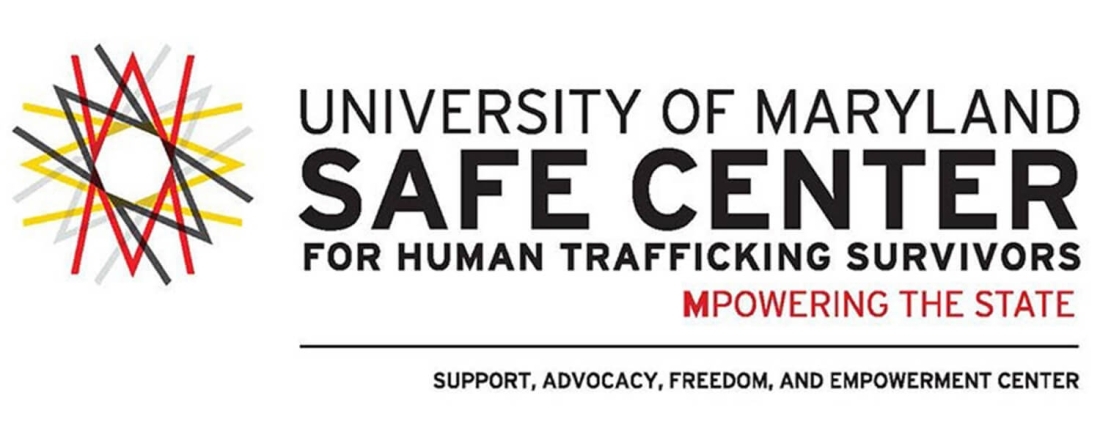
COLLEGE PARK, Md.-- The University of Maryland Support, Advocacy, Freedom and Empowerment (SAFE) Center for Human Trafficking Survivors and the Prince George’s County Police Department (PGPD) have received a joint three-year grant totaling more than $1.3 million from the U.S. Department of Justice Office for Victims of Crime and Bureau of Justice Assistance to coordinate work to fight human trafficking in Prince George’s County, Md.
“The human toll of trafficking has terrorized families and victims across Maryland for years. Fully addressing and combatting human trafficking requires an all-hands-on-deck approach,” said Maryland Sen. Chris Van Hollen, a member of the Appropriations and Budget Committees. “This grant will allow the SAFE Center and the Prince George’s County Police Department to continue their crucial partnership battling this crisis. I’m glad to see national recognition of the outstanding work this team accomplishes, and I will continue to support funding to back anti-human trafficking initiatives at all levels across Maryland and the country.”
Prince George’s is one of only two counties in the country to receive the grant, which was created to enhance collaboration between service providers and law enforcement within human trafficking task forces. The Prince George’s County Human Trafficking Task Force (PGCHTTF) brings together law enforcement, social services, government agencies, and community organizations to combat human trafficking.
“Human trafficking is unacceptable in this county or anywhere and it will never cease until we commit ourselves to thwarting this horrible mistreatment of innocent people,” said Prince George’s County Executive Rushern L. Baker, III. “Since taking office, my administration has taken this issue head on through the great work of our Human Relations Commission, Prince George’s County Police Department, State Attorney’s Office and other agencies, that are combatting human trafficking. In addition, we created the Prince George’s County Human Trafficking Task Force to bring together various partners committed to putting an end to this unthinkable treatment of people. This grant will go a long way in assisting our efforts to eliminate human trafficking throughout this county, state, and region. I want to thank the Department of Justice, our Congressional delegation and the University of Maryland for their partnership and fiscal support of our efforts to eradicate these inhumane acts from our communities.”
"This grant will enable the SAFE Center and our partners to provide the full range of services human trafficking victims so desperately need to rebuild their lives. It will also help get traffickers off the streets so they cannot continue to rob our community’s most vulnerable members of their freedom and dignity,” said Ambassador Susan Esserman, JD, SAFE Center founder and director. She is a visiting faculty member in the University of Maryland School of Social Work, the University of Maryland Francis King Carey School of Law and the University of Maryland School of Public Policy.
The grant award is evidence of the commitment and resolve of organizations and agencies combating human trafficking in Prince George’s County, as well as the significant work of the PGCHTTF. It will amplify the task force’s multidisciplinary collaboration and coordinated approach to identify victims of all forms of trafficking; address the individualized needs of victims; and investigate and prosecute sex and labor trafficking cases at the local, state, and federal levels.
In addition to lead service grantee SAFE Center, direct service collaborators include FAIR Girls, Amara Legal Center, and other members of the PGCHTTF that provide services to trafficking survivors.
Law enforcement grantee PGPD is joined by law enforcement partners including the Prince George’s County State’s Attorney’s Office, the Department of Homeland Security, Homeland Security Investigations, and the U.S. Attorney’s Office for the District of Maryland.
Prince George’s County Police Chief Hank Stawinski III said he was “proud that the Department of Justice and the Bureau of Justice Assistance have acknowledged the progressive and effective police work being done collaboratively in Prince George's County and I look forward to advancing that work with these much appreciated funds.”
Added Prince George’s County State’s Attorney Angela Alsobrooks, “Human trafficking is a crime that is negatively impacting so many and tearing families apart. This grant will enhance our joint efforts to arrest and prosecute those who prey on innocent young women and children, while also helping us to better serve the needs of our victims.”
“Receiving this grant is a testament to the efforts of County employees and volunteers on the Task Force who have worked long and hard since 2013 to restore victims, educate the public and to show traffickers that we are dead serious about combatting human trafficking in all its forms.” said Michael Lyles, PGCHTTF chairman.
The University of Maryland SAFE Center for Human Trafficking Survivors is the first university-based comprehensive direct services, research, and advocacy center on human trafficking. Its mission is to provide survivor-centered and trauma-informed services that empower human trafficking survivors to heal and reclaim their lives, and to help prevent trafficking and better serve survivors through research and policy advocacy. The SAFE Center plays a leadership role in the PGCHTTF and the community. Through in-house services and collaborative partnerships, the SAFE Center provides comprehensive legal, case management, mental health, primary medical, and economic empowerment services to U.S. and foreign-born adult and child survivors of sex and labor trafficking.
An initiative of the University of Maryland, College Park (UMCP) and University of Maryland, Baltimore (UMB) through its formal partnership for innovation, University of Maryland Strategic Partnership: MPowering the State, the SAFE Center draws on the wide range of disciplines of both universities to address human trafficking.
This press release originally appeared on UMD Right Now.
